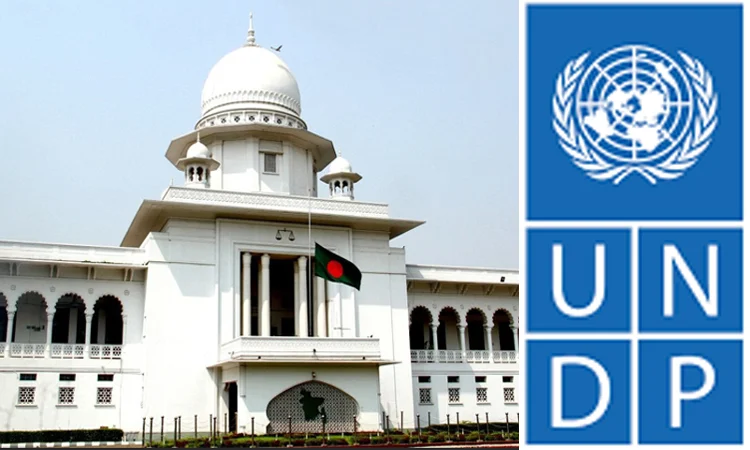News Flash

DHAKA, June 20, 2025 (BSS) - As the interim government is working to bring reform in the judiciary, the United Nations Development Programme (UNDP) is providing support for digitalising Bangladesh's judiciary to make it fully independent.
Through expert assessments and technical advice, the UNDP is helping the judiciary adopt modern digital systems for case management, court proceedings, and public services.
"This not only enhances efficiency but also reduces opportunities for corruption and external influence, thereby reinforcing judicial autonomy," Stefan Liller, Resident Representative of UNDP Bangladesh, said.
With an emphasis on national leadership of the justice reform process, he said, the UNDP is helping build sustainable in-house capacity within the judiciary.
This model promotes ownership and internal resilience, allowing the judiciary to independently drive and manage reform processes over the long term, Stefan added.
The UNDP is also supporting the Supreme Court in setting up a hotline for court users to report practice of abuse of office including in violation of judicial independence.
According to UNDP officials, to address case backlogs, the UNDP is working with court officials and experts to modemise and streamline case processing.
This includes reviewing procedural backlogs, redesigning workflow systems, and introducing faster adjudication mechanisms including the digitalisation of the courts.
Through outreach and awareness efforts, the UNDP is also supporting mechanisms like mediation and ADR, which divert minor and civil disputes away from formal court processes, thus reducing pressure on the judiciary.
Digitalisation of the legal aid services through an EU supported project is another mechanism to reduce the case backlog on the legal aid offices and the court rooms as well.
According to Supreme Court reports, by December 2024, the total number of pending cases stood at 45,16,603, including 31,606 in the Appellate Division, 5,89,651 in the High Court, and 38,95,832 in lower courts.
Besides, on 21 September 2024, responding to a strong popular call for justice reforms, Chief Justice Syed Refaat Ahmed launched a visionary reform roadmap for the judiciary aimed at boosting judicial independence and efficiency.
UNDP, in collaboration with Sweden, became the main partner of the Supreme Court in supporting the implementation of the roadmap and supported the roll out of an in-depth country-wide dialogue series with judges in Dhaka, Mymensingh, Chattogram, Khulna, Rajshahi, Sylhet, Barishal and Rangpur on judicial independence, integrity and accountability.
The workshop series lead by the Chief Justice himself sought to transform justice delivery, gauge broad support for the roadmap and deepen judges' understanding for judicial independence.
UNDP supported the Supreme Court's outreach capacity through secondment of a communications specialist and convening of a workshop series with law reporters and the Supreme Court to deepen knowledge of journalists on justice reforms.